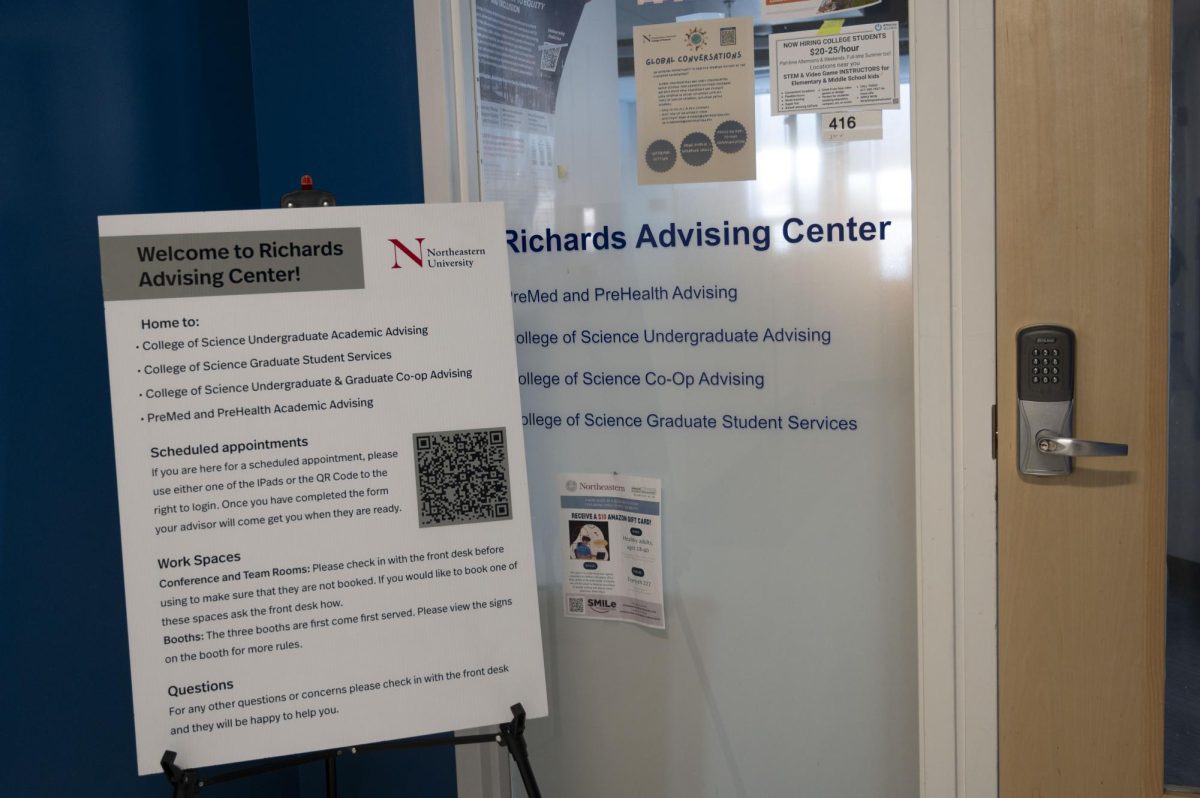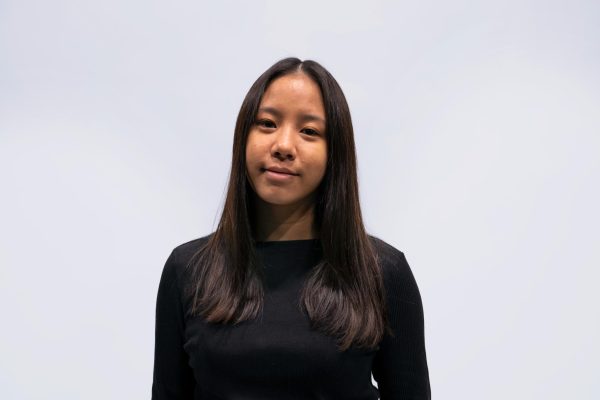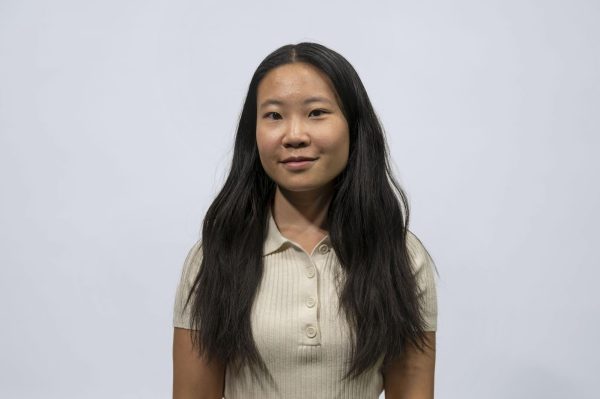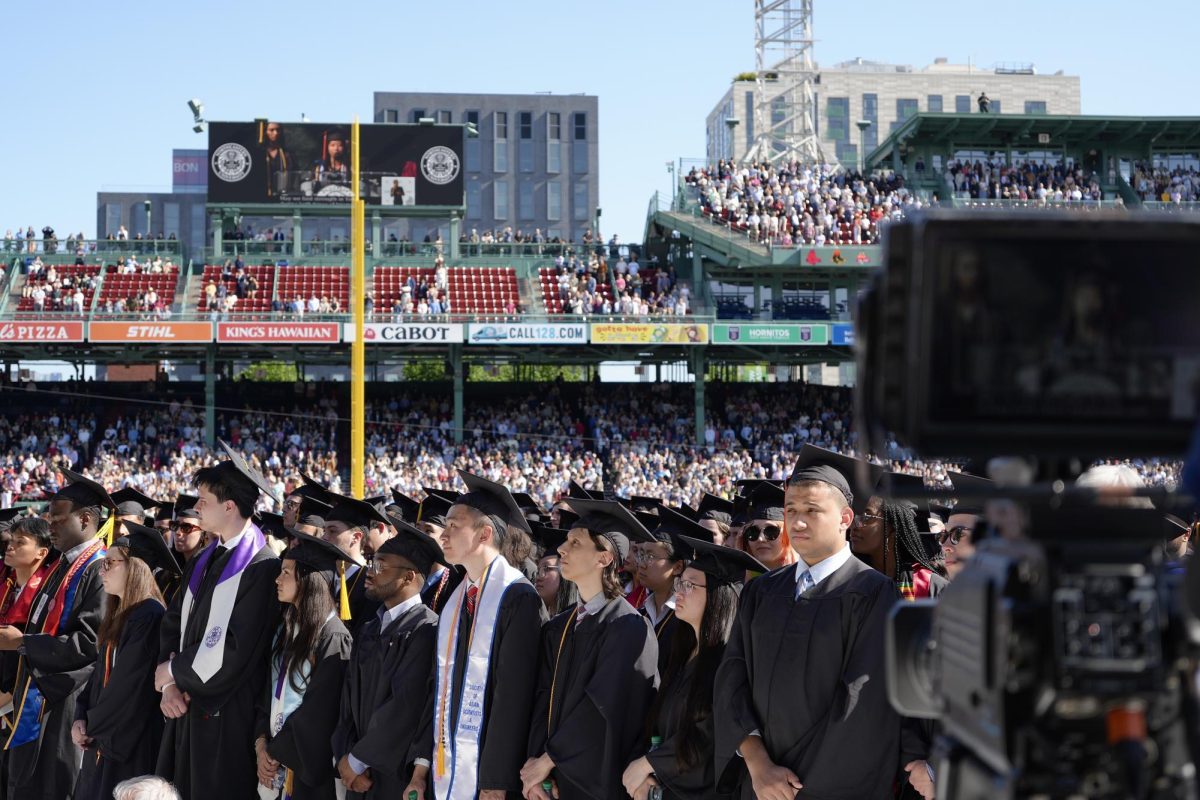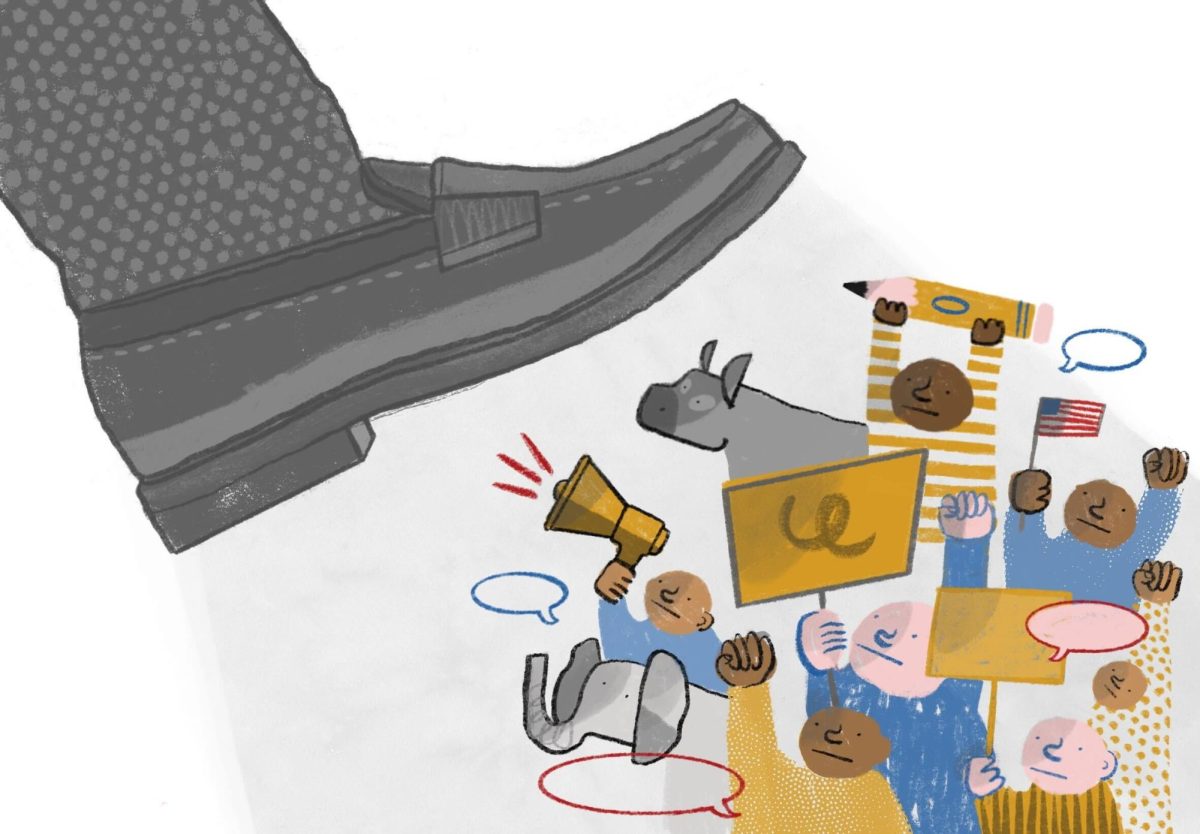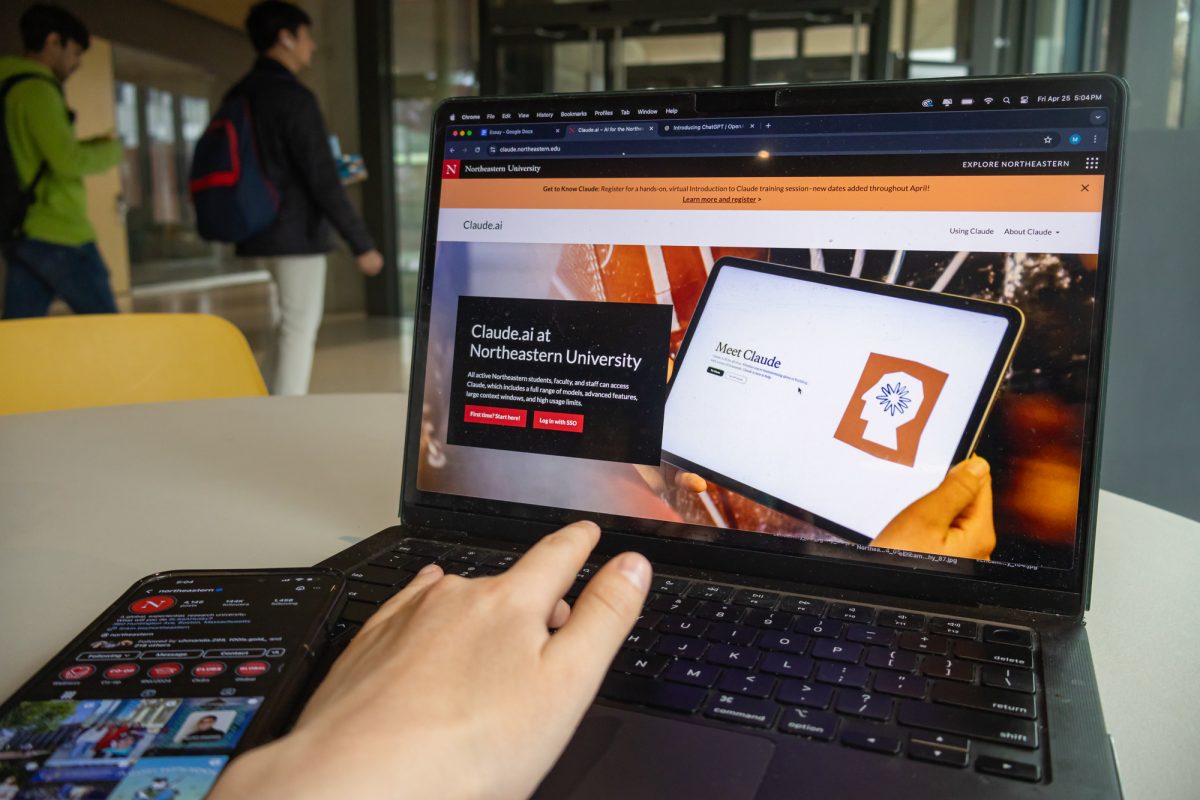Despite the sheer number of students at Northeastern University, there was never a moment in which I felt neglected by the institution. Whether it is the obstacles students face during course registration, changing majors or receiving reassurance amid academic hardship, I feel secure knowing there is a strong support system in place to combat myriad problems students encounter throughout the semester.
While this may be true, these university resources are unfortunately a hidden treasure — only accessible to the students who proactively try to seek them out.
As someone who was part of the N.U.in program in Scotland my first semester, I came back to the Boston campus firmly set on changing majors from biology to behavioral neuroscience. I felt the biology material was too broad and wished to study something more niche. Having missed getting to know my advisers at the start of my first year, I took to Northeastern’s Student Hub, an online platform that allows students to access a wide range of resources.
I’ve been used to the cryptic and often unhelpful resources we were provided in high school and was pleasantly surprised at the organized layout of the Student Hub that condenses each resource under specific categories. This platform allows you to schedule meetings with school personnel, access transcripts, course selections and financial services, among other functions. In a matter of seconds, I successfully located the adviser page, clicked on an appointment time slot and switched majors within a week.
With the wealth of invaluable information that the hub covers, Northeastern could do a better job promoting these resources so that students are more aware of them. For instance, the university could send periodic emails throughout the semester of “most frequently asked questions” that detail the specific resources and where they are located on the hub that answer them, in an effort to show students that these resources are available.
During the summer after my first year of college, I struggled immensely in my accelerated genetics course that required us to digest all of the complex topics in half the time as a regular semester. Despite my best efforts, I strongly considered withdrawing from the course and consulted my academic adviser for guidance.
While his area of expertise revolved around major and course requirements, he willingly tackled this crisis from a pre-med standpoint and laid out the pros and cons of making this decision in an unbiased manner. Our conversation via Zoom lasted a quick 15 to 30 minutes and he came equipped with multiple resources ready to go. In an ideal world, each student is assigned one adviser that accompanies them throughout their academic career. Consequently, the ideal adviser can become increasingly well-versed in each individual’s circumstances and quickly pick up where they left off. Even so, this reality couldn’t be further from the truth as an adviser’s “understanding” of their students may only stretch as far as their four-year academic plans.
If not for my adviser’s words of validation and encouragement, I’d have likely withdrawn from genetics. Due to my adviser’s generally approachable nature, I don’t hesitate to approach them with any questions I may have — no matter how trivial.
While my advisers have played a major role in enabling my academic success thus far, I’ve had to proactively reach out to them for assistance every time. As of fall 2024, Northeastern welcomed an incoming class of 2,600 undergraduates on the Boston campus, which has increased by 53% over the last five years. As the student population outnumbers the amount of advisers available, it’s even more crucial that the advisers have the resources to set aside as much time as possible to attend to each student’s needs.
Even so, it’s perplexing that my adviser never has meeting slots available during the most stressful times of the semester, namely, course registration week. As a last resort, students frantically turn to email, only to receive an automated message saying they are on leave and to direct all questions to the virtual drop-in sessions instead. While this may seem like a smart move to cover more ground, the drop-in sessions never extend past 5 p.m., which fails to accommodate the varied schedules of each Northeastern student. As someone who is currently on co-op working 12-hour days, I once used up my entire 45-minute break to get one trivial question answered which could have taken less than five minutes to resolve via email.
As of fall 2023 within the College of Science, there were around 18 undergraduate academic advisers compared to the 2,894 total number of full-time undergraduates. If this isn’t a clear enough sign for Northeastern to increase the number of advisers available, I don’t know what is. I believe advisers could implement a “filtration system,” which prioritizes the students who have questions that are less complicated in nature. This would also grant more conversation time for students in need of more urgent assistance.
Even so, it’s not enough to simply increase adviser availability — they also need to enhance their connections with students as well. Suggestions for fostering stronger relationships include little gestures like sending monthly emails to check in on how students are doing academically. Oftentimes, individuals may be more inclined to ask for advice when approached first. Advisers could also organize events for them to interact with their students in person. These moments can take place during Northeastern’s Welcome Week or even through coffee chats which provide a casual atmosphere that supersedes the impersonal conversations via Zoom.
Another useful academic resource is the College of Science Tutoring Center, taught by college students on campus. This center is open from 2 p.m. to 7 p.m. from Monday to Thursday, encouraging students to freely walk in without having to schedule virtual appointments. There are seven subjects offered at this center and I remember staying for three to four hours a day asking my tutor questions regarding multiple subjects ranging from organic chemistry to physics. If my tutor didn’t know the answer to something, other tutors were quick to help out, which enabled them to resolve my questions efficiently.
One of the most valuable parts about this resource was that you could always expect to see the same tutors at visits. In turn, this serves as a factor of stability for students who learn best with certain mentors whose method of teaching aligns with a specific learning style. Furthermore, tutors have the liberty to engage in different modes of teaching that go beyond pencil and paper, such as model-building or utilizing the whiteboard.
While I’ve received so much guidance at the Tutoring Center, I’m always surprised to find several tutors who spend the majority of the session doing their own coursework — their expertise underutilized by a lack of student attendance. If a student were to seek out tutoring at Northeastern, they are often directed to a page that offers tutoring support on Knack. This is a virtual tutoring platform in partnership with Northeastern that the university freely offers to undergraduate students in 1-on-1 and small-group settings. In reality, most in-person tutoring resources are housed under the tab that says “Other Tutoring Services” which most students are likely to skip over by accident.
If in-person tutoring resources were more frequently promoted by professors throughout the semester, via email or displayed on flyers across campus, I’m certain this would greatly benefit many undergraduate students — especially underclassmen in the midst of navigating through the choppy waters of college life.
While there are always areas that can be improved upon, I am willing to continually do my part in urging those around me to proactively seek out academic resources and ask for help when they need it. Regardless of the route it takes to get there, what’s important is that students get the help they need in a timely manner — which would be easier if resources were made more accessible at Northeastern.
Mikayla Tsai is a third-year behavioral neuroscience major and columnist for The News. She can be reached at tsai.mik@northeastern.edu.



